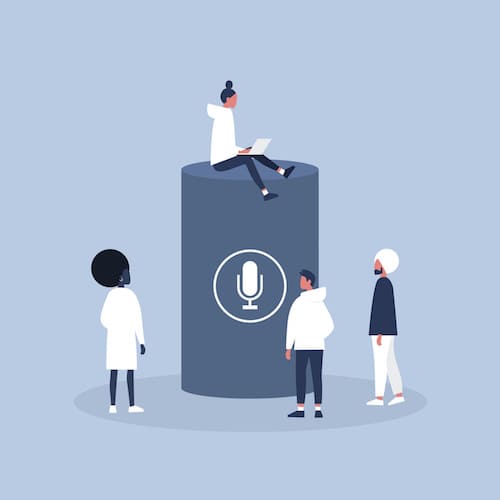July 09, 2019
By Diamond James
 I’ve been told millennials are entitled, vocal and live by the concept of instant gratification, which results in a lot of impatience. Whether you agree with these perceptions, one thing that’s undeniable is millennials’ ability to advocate. The millennial voice has birthed various movements, raising awareness on critical social issues.
I’ve been told millennials are entitled, vocal and live by the concept of instant gratification, which results in a lot of impatience. Whether you agree with these perceptions, one thing that’s undeniable is millennials’ ability to advocate. The millennial voice has birthed various movements, raising awareness on critical social issues.
We may be seen as a controversial group, but we speak up rather than struggling in silence. This trait is important when it comes to mental health. For so long, mental illness has been a taboo topic. It’s one people have been scared to talk about—and sometimes they still are—because of public perception. Questions such as “Will people judge me or think I’m ‘crazy’?” make it harder to speak up and seek services.
Even as a millennial and a social work student, I have found myself internalizing stigma around going to therapy. I have been guilty of saying, “I don’t want other people to know my business.” I eventually realized the experiences I once wanted to hide are not isolated. There are others who can relate to me and provide solidarity and support. And talking about mental health—feeling accepted—can make all the difference.
Let Us Bridge the Gap
I identify with the African American community. Growing up, I saw a common trend: Older African Americans are not as open about mental health as younger African Americans. I believe millennials can be the ones to fill that gap. Those of us who have relationships with older generations can enlighten them about the importance of not only taking care of ourselves physically but taking care of ourselves mentally and emotionally. Why is this important? Older generations are not excluded from mental illness. Research supports the idea that mental and physical components of health are interconnected.
Not only can we bridge the gap across generations, but we also can bridge gaps racially. As a generation that prides itself on diversity and inclusion, millennials can have the hard conversations with other racial and ethnic groups. We can shed light on why mental illness has been accepted in some groups and not in others. I believe this dialogue can help create culturally competent future mental health professionals. It also can help create more empathetic supports as we invest in our own mental wellness.
We have the ability to bridge the various gaps to normalize mental health, and I believe it is our responsibility. We should want to empower others to invest in themselves. So while millennials aren’t always seen in the best light, I believe we can do a lot of good in our respective communities. We can use our influence to help people of all ages become whole and well. Regardless of the perception, the reality is people are listening to us.
Let Us Lead by Example
As a millennial, I encourage other millennials to keep using their voices. With social media, our platform is a lot larger than the platforms earlier generations have had. The more we talk about mental health, the more we’re able to help break down the stigma that keeps people silent. The more knowledge we take in, the more truth we’re able to spread.
Sometimes the most impactful thing we can say is not with our words but with our actions. Let us not forget in the midst of advocating for others’ mental health to take care of our own. Let us lead by example. As we go to therapy, engage in self-care, maintain awareness of our mental and emotional states and break down the stigma, we speak volumes to other people. It’s by our example that we can influence others to take action. It is by our own development and growth that others are willing to take mental health and mental illness seriously. So, let’s take care of ourselves, for ourselves, but show others the journey when we can.
Diamond James is a Licensed Clinical Social Worker Associate working in her community to help increase the conversation about mental health. She currently uses her website, BreakingDownStigma.com, to promote discussions about mental health to help communities of color feel empowered to speak out and invest in their wellness.
Submit To The NAMI Blog
We’re always accepting submissions to the NAMI Blog! We feature the latest research, stories of recovery, ways to end stigma and strategies for living well with mental illness. Most importantly: We feature your voices.
LEARN MORE